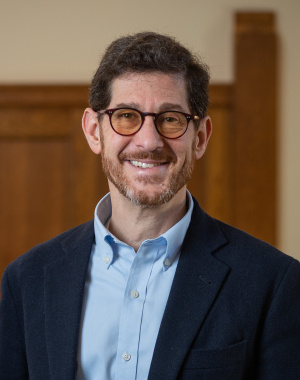
In Michigan, each year 140,000 children are investigated for suspected child abuse or neglect. Many of these youth end up in foster care, where they are especially vulnerable to long-term difficulties. Research has shown that children associated with maltreatment allegations scored significantly lower on standardized math and reading tests, and that they can exhibit significantly worse outcomes in the areas of mental health, substance abuse and education.
In an effort to reduce child maltreatment recidivism and foster care placement, the Michigan Department of Health and Human Services (MDHHS) is piloting an in-home, parent-focused program called SafeCare.
To evaluate the program, the Youth Policy Lab (YPL) has received a grant from Arnold Ventures to conduct a randomized controlled trial (RCT).
YPL founder and faculty co-director Brian Jacob is the Co-Principal Investigator along with Joseph Ryan, professor in the School of Social Work (MSSW).
SafeCare is an in-home, parent-training program that targets risk factors for child neglect and physical abuse, which teaches caregivers skills on how to interact in a positive manner with their children; to recognize hazards in the home to improve the home environment; and to recognize and respond to symptoms of illness and injury.
While several studies have evaluated SafeCare against comparison groups, including RCTs and quasi-experimental studies, the prior research does not provide definitive causal evidence.
The YPL evaluation will be relevant to bolster the justification for MDHHS as it allocates over $6 million in funding for SafeCare over the course of its first three-year pilot, and also to be able to draw on federal funding under the 2018 Family First Prevention Services Act (Family First). It could have wider, national significance: If the study finds evidence for SafeCare’s effectiveness and is well-rated by the Prevention Services Clearinghouse, this will pave the way for states nationwide to use Family First funds for SafeCare, influencing program choices in child welfare throughout the country.
The RCT will evaluate the effectiveness of SafeCare relative to a “services as usual” counterfactual in which caseworkers will provide services from the existing suite of programs available to families. Randomization will be achievable because in the 17 counties where the program is being piloted, only 996 families can be served per year, against a population of more than 10,000 families who are eligible.
Drawing on child welfare administrative data from MDHHS for background characteristics (e.g. demographics and past maltreatment allegations), the RCT will seek to measure long-term recurrence of child maltreatment and out-of-home placement.
